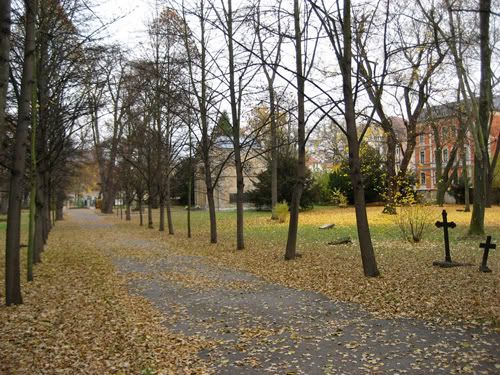by Julie Köpper

One of the places I got to know first in Weimar was the old cemetery. As I lived at a friend’s place in the neighbourhood to the west of the cemetery, I walked through it several times a day going up and down the hill to the university.
It was like a short escape from my quotidian routine - away of reminding me of the essence of what life is about – time and memory.
In a more general perspective it made me think of the city and all the invisible traces of lives and moments.
Concerning the idea of urban heritage I tried to think of the different elements in the cityscape: buildings, architectural details, streets, places, and the space itself. What do they tell us about time or the things that happened there?
Where is the memory in a specific place? Is it the building that becomes a symbol of a historical moment or epoch; is it the material with visible traces of decay and use? Or can it be the space itself memorizing the thousands of movements that it embraced?
If you think of the space as location or loci is would remain untouched by time - immaterial and unable to be destroyed.
I remember visiting St. Petersburg years ago. I was standing on the huge plaza in front of the Winter Palace imagining the October revolution.
To me the vastness of the space generated the image of the masses of people.
What really impressed me was the massive space that somehow memorized the moment before the assault of the Winter Palace.
Of course it is always a question of imagination but to me this moment was condensed in the air of this specific space.

I hadn't really thought about this before reading your post, but I've found cemetaries make the past feel more concrete. Like the cemetary of freed slaves near my home in North Carolina reminds me that history is not merely an interesting narrative, like a novel, but about the experiences of real people. And like that past somehow lingers.
ReplyDelete